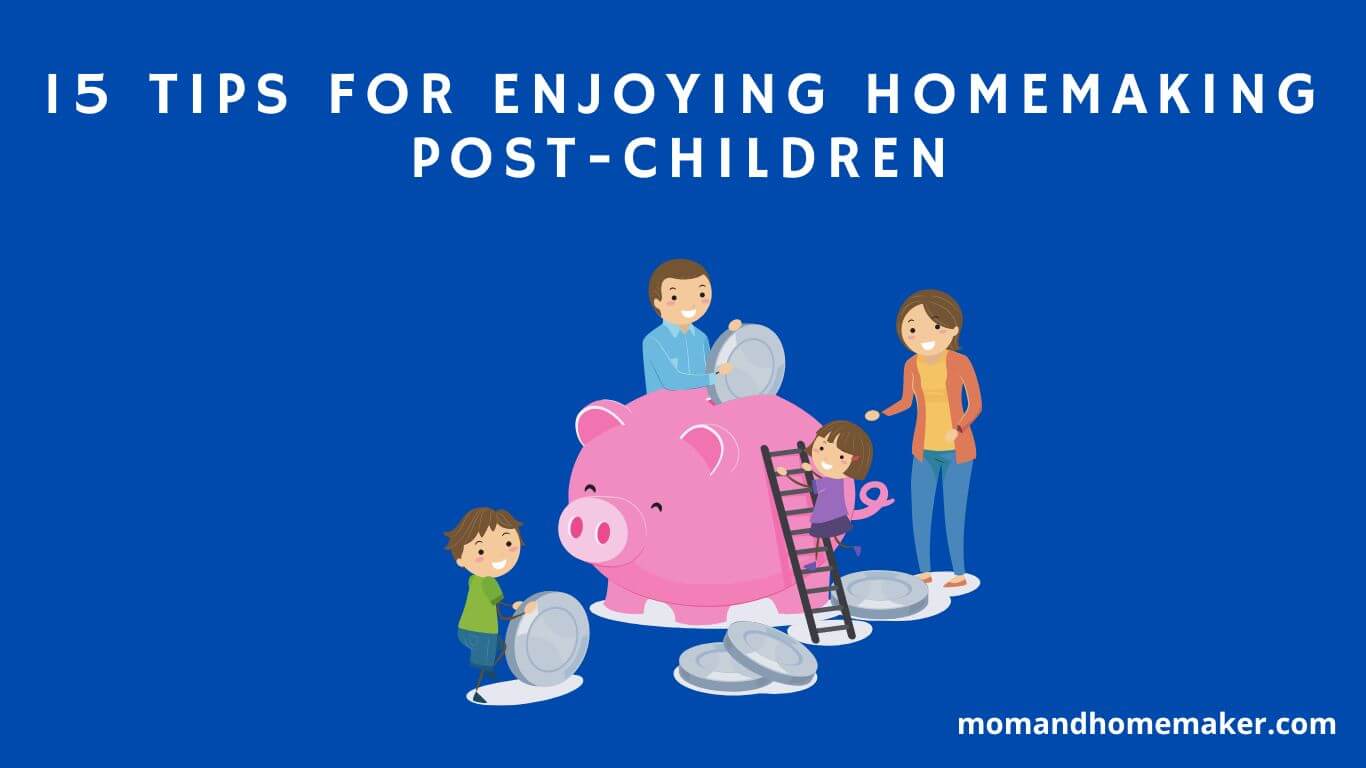Imagine your financial journey as a winding road with unexpected turns and obstacles. For stay-at-home moms, the question of securing a personal loan may arise. The key lies in understanding what lenders look for and the available options.
Can a stay-at-home mom get a personal loan? Let’s delve into the strategies and possibilities that can lead to financial empowerment and stability.
Understanding Personal Loans

If you’re thinking about getting a personal loan, it’s important to know how they work. Personal loans can be secured with collateral or unsecured without it. Repayment usually involves making fixed monthly payments over a specific period. Make sure to check the loan’s borrowing limits, which vary based on the lender and your creditworthiness.
Interest rates are key in personal loans. They can be fixed, staying constant, or variable, changing with market conditions. Understanding interest rates can help you pick the most affordable option. Credit requirements matter too – a good credit score can mean lower rates and higher borrowing limits. Conversely, a lower credit score might lead to higher rates or tighter borrowing limits.
Eligibility Criteria for Stay-At-Home Moms
Stay-at-home moms applying for a personal loan may need to show different income verification documents to meet lender requirements. Proving a stable source of income is crucial when seeking a personal loan.
As a stay-at-home mom, you can explore various options to confirm your income and increase your chances of loan approval. Be sure to include details about any spousal support, child support, freelance work, or rental income you receive. Additionally, demonstrating your budgeting skills can showcase your ability to handle finances responsibly.
To bolster your financial position and ensure that you can afford the loan, it’s important to paint a clear picture of your income and expenses. Lenders may value your proactive approach to budgeting and planning for loan repayment.
By emphasizing your dedication to financial responsibility, you can enhance your eligibility for a personal loan. Remember, being transparent and providing thorough documentation are key factors in the loan approval process.
Importance of Credit Score

Understanding your credit score is crucial when applying for a personal loan as a stay-at-home mom. Your credit score reflects your history of borrowing and repaying, helping lenders assess your creditworthiness and the risk of lending to you.
A key factor that impacts your credit score is credit utilization, which compares the credit you use to your total available credit. Maintaining a low credit utilization ratio demonstrates responsible credit management and can boost your score.
Regularly monitoring your credit report for errors is essential. Being aware of your credit status allows you to address any issues promptly and ensure your score accurately represents your financial behavior.
Improving your credit score over time involves making timely payments, keeping balances low, and avoiding opening many new accounts. Remember, a good credit score opens doors to better loan terms and opportunities for you.
Documentation Requirements
When applying for a personal loan, you’ll need to provide specific documentation to support your financial standing and credibility. Here are the key documents you may need to prepare:
- Income Verification: Prepare proof of your income from various sources, such as part-time work or investments.
- Asset Disclosure: Share details of your assets, including savings accounts, investments, and valuable possessions.
- Spousal Support: If applicable, provide documentation of any financial assistance you receive from your spouse.
- Childcare Costs: Outline your childcare expenses to help the lender understand your financial obligations.
Consider creating a Household Budget to demonstrate your financial management and repayment plan. Presenting these documents accurately can strengthen your loan application and improve your approval chances.
Exploring Loan Options

When you explore different loan options, you gain a better understanding of the financial opportunities available to you. It’s important to choose loans that align with your financial goals. Here are some key factors to consider:
| Budgeting Tips | Emergency Funds | Savings Goals |
|---|---|---|
| Make a detailed budget to track your expenses and income. | Set money aside for unexpected expenses or emergencies. | Establish clear savings goals for both short and long-term needs. |
| Debt Management | Financial Planning | |
| Create a plan to pay off any existing debts and improve your credit. | Develop a financial plan that includes saving, investing, and retirement goals. |
Secured Vs. Unsecured Loans
When considering different loan options, it’s essential to understand the distinction between secured and unsecured loans. Secured loans require collateral, like a home or a car, which lowers the lender’s risk. On the other hand, unsecured loans don’t need collateral but often come with higher interest rates.
Your credit score is crucial for both types of loans. A strong credit history can help you qualify for better terms and rates. Lenders also typically require proof of income to ensure you can repay the loan, regardless of whether it’s secured or unsecured.
Secured loans usually allow for higher loan amounts due to the collateral involved, while unsecured loans may have lower limits based on your creditworthiness. It’s important to understand the repayment plans offered by different loan types and choose the one that aligns with your financial situation.
Co-Signer Considerations

When you have a co-signer for a personal loan, it can boost your chances of approval, especially if your credit history or income alone may not meet the lender’s requirements. It’s important to understand the responsibilities that come with having a co-signer.
A co-signer shares equal responsibility for repaying the loan if the primary borrower defaults. Therefore, it’s crucial to choose someone who fully understands and is willing to take on this commitment. Joint loan agreements are typically used in these situations to outline the obligations and liabilities of both parties.
While having a co-signer can improve your chances of securing a loan, there are risks involved. If you fail to make payments, it won’t only affect your credit but also impact your co-signer’s credit. On the positive side, co-signers can benefit from assisting you in obtaining a loan by potentially enhancing their own credit scores.
To qualify as a co-signer, individuals usually need a good credit score, a stable income, and a willingness to support them in obtaining the loan. It’s essential to choose your co-signer wisely to navigate the process responsibly and smoothly.
Loan Application Process
When applying for a loan, gathering all the required documents beforehand can make the process much easier. Here are some important steps to follow:
- Income Verification: Make sure you have proof of your income, whether from a job, freelance work, or other sources.
- Loan Amount: Figure out the exact amount you need to borrow and ensure it matches your financial requirements.
- Repayment Schedule: Understand the repayment terms offered by different lenders and choose a plan that suits your budget and timeline.
- Interest Rate Comparison: Compare interest rates from different lenders to find the best option that will save you money in the long term.
Online Lenders for Convenience

Looking for a personal loan? Consider online lenders for a convenient and efficient application process. Applying from home saves time and fits into your busy schedule as a stay-at-home mom.
Online lenders simplify the borrowing process with user-friendly steps and quick approvals, reducing stress. They offer flexible terms tailored to your financial needs and competitive rates for favorable loan terms.
Choosing online lenders can be a practical solution for stay-at-home moms seeking financial assistance.
Interest Rates and Terms
When considering a personal loan from online lenders as a stay-at-home mom, it’s important to explore interest rates and terms. To make a well-informed decision, here are some key aspects to focus on:
- Interest Rates and Loan Terms: Make sure to compare interest rates and understand the terms of the loan to secure the best deal possible.
- Budget Planning and Repayment Schedule: Carefully plan your budget and select a repayment schedule that fits your financial situation to avoid future challenges.
- Loan Amounts and Borrowing Limits: Evaluate the loan amounts offered by different lenders to ensure they meet your financial needs without exceeding your borrowing limits.
- Credit History and Financial Standing: Assess your credit history and current financial standing to gauge how they may impact the loan terms you’re offered.
- Rate Negotiation and Lender Options: Feel free to negotiate rates with lenders and explore various lender options to find the one that best suits your requirements.
Loan Repayment Strategies

When managing your personal loan as a stay-at-home mom, it’s important to use smart repayment strategies to reach your financial goals. Creating a budget is crucial to make sure you set aside enough money each month for your loan payments. By outlining all your expenses and income, you can better control your finances.
Saving money is a key part of repaying your loan efficiently. Look for areas where you can reduce expenses to have more money available for loan repayments. Timely payments can help you avoid extra fees, so it’s essential to actively manage your debt.
Exploring different income sources like part-time work or freelance opportunities can boost your cash flow and speed up your loan repayment. Having an emergency fund is also important to handle unexpected expenses and continue making loan payments without stress. By following these strategies, you can effectively repay your personal loan while maintaining financial stability as a stay-at-home mom.
Avoiding Predatory Lenders
When seeking out lenders, it’s important to be cautious and vigilant to avoid falling victim to predatory practices that can harm your financial well-being. Predatory lending can target vulnerable individuals, like stay-at-home moms, and lead to debt traps and financial instability. Here are some key points to consider to protect yourself and your finances:
- Watch Out for Predatory Practices: Be wary of lenders offering loans with extremely high interest rates, hidden fees, or unclear terms that could trap you in a cycle of debt.
- Choose Reputable Lenders: Opt for lenders that follow regulations and provide clear terms to safeguard your rights as a borrower.
- Assess Loan Affordability: Before taking out a loan, carefully evaluate your financial situation to ensure you can comfortably make repayments without financial strain.
- Practice Responsible Borrowing: Only borrow what you genuinely need and can afford to pay back to maintain your financial well-being and avoid unnecessary debt burdens.
Impact on Credit Score

When you decide to take out a personal loan as a stay-at-home mom, it can have a significant impact on your credit score. Understanding how this choice can influence various aspects of your credit profile is crucial.
One key factor is credit utilization, which compares the credit you use to the total available to you. Maxing out a new loan could raise concerns for creditors.
Another important factor is your payment history. Making timely payments can boost your score, while late payments can harm it.
Additionally, the length of your credit history is significant; opening a new account can shorten your average account age.
It’s also essential to consider the types of credit you have, as having a mix of credit like installment loans and credit cards can benefit your score.
Lastly, each new loan application results in a credit inquiry, which may temporarily lower your score. Being mindful of these factors can help you make informed decisions when considering a personal loan.
Building Financial Stability
To achieve financial stability as a stay-at-home mom, it’s important to plan carefully and make strategic decisions. Here are some key steps to help you build a strong financial foundation:
- Budgeting: Start by creating a detailed budget that shows your income and expenses. Keep track of your spending to find areas where you can save more.
- Emergency Savings: Set aside some of your income for unexpected costs. Aim to build an emergency fund that can cover 3-6 months’ worth of living expenses.
- Saving Strategies: Explore different ways to save money, like automatic transfers to a savings account, setting savings goals, and avoiding impulse purchases.
- Side Income: Consider flexible ways to earn extra money from home, such as freelancing, tutoring, or selling handmade items. A side hustle can help boost your finances and provide added security.
Seeking Financial Counseling

Consider seeking advice from a financial counselor to gain personalized help with managing your money effectively. A financial counselor can assist you with budget planning, helping you allocate your funds wisely to cover expenses and save for the future. They can also guide you in creating emergency savings to prepare for unexpected costs.
If you have debts, a financial counselor can provide strategies for managing them efficiently, enabling you to pay off loans effectively. Additionally, they can introduce you to investment options tailored to your financial goals and risk tolerance, helping you make informed decisions.
Planning for retirement is also a crucial aspect where a financial counselor can support you in ensuring a secure financial future. By consulting with a financial counselor, you can gain a clearer understanding of your financial situation and work towards achieving stability and long-term financial well-being.
Conclusion
Yes, a stay-at-home mom can definitely qualify for a personal loan. By meeting the requirements and providing the right documentation, you can access the financial support you need.
It’s essential to maintain a good credit score, explore various loan options, and steer clear of predatory lenders. These steps will help you establish financial security for yourself and your family.
If you need additional assistance, consider seeking financial counseling. Remember, the possibilities for financial empowerment are endless!









